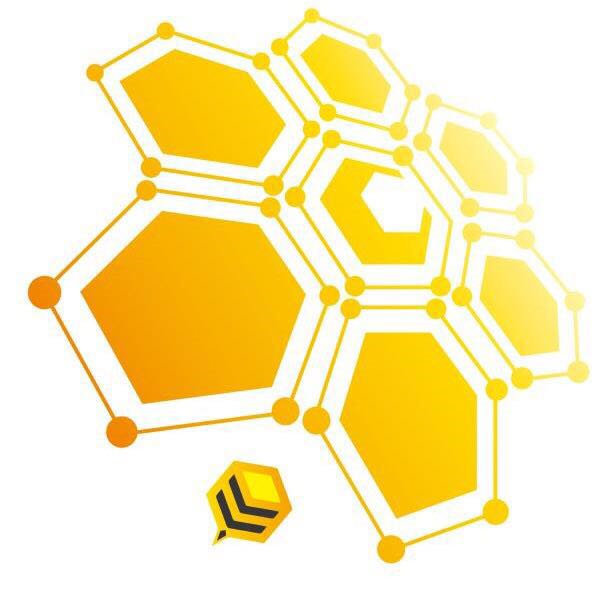Editor’s note: This article is from Honeycomb Finance News (ID: fengchao-caijing),author: Chi, reprinted by Odaily with authorization.

Recently, the digital currency Zcash (Zcash), which focuses on anonymous transactions, completed a hard fork, and a Ycash, which is different from the original chain mining algorithm and reward system, was born.
Different from the situation where the original chain community was torn apart by the fork of the blockchain network in the past, the Zcash official showed enough friendliness and even encouraged coin holders to receive YEC candy.
However, this open attitude has not been responded by mainstream exchanges. At present, except for Bitpie and Hoo Wallet, Binance, OKEx and other first-tier exchanges have not yet confirmed whether they will provide Ycash airdrop and transaction support. There was also little investor discussion about the fork on social media.
Shapiro, CEO of digital currency wallet MyMonero, believes that Zcashs semi-centralized governance model is the main reason why mainstream platforms are indifferent to Ycash. The question arises: how is it different from fiat money?
secondary title
The original chain supports the YEC fork
On July 19, Zcash (ZEC) successfully forked Ycash (YEC) at block height 570,000. Since then, the original ZEC main chain has officially split into two different blockchain networks.
image description

Hufu Wallet supports 1:1 airdrop of forked currency Ycash
Ycash founder Howard Loo (Howard Loo) was one of the core members of the Zcash development team. He said that there are two main differences between Ycash and Zcash after the fork.
Howard Loo said, First of all, YEC adopts an improved version of the Equihash mining algorithm, which means that the original Zcash Asic mining machine will not be suitable for this. Second, Ycash reduces the founder reward of the original chain network from 20% to 5% %, which will help solve the financial difficulties faced by the original chain development team in the future.”
The Founders Reward is a system that has been used since the Zcash project was founded in 2016. It stipulates that 20% of miners block rewards will be automatically distributed to community developers. This fund is mainly distributed by the Zcash Foundation, which is the source of income for the development and daily operation of the Electric Coin Company (ECC), the core developer of ZEC.
According to regulations, when the ZEC network cuts production in October 2020, the system will be cancelled. This means that ECC will face the dilemma of having no money to continue development.
In the face of difficulties, in June this year, Zcash founder Zooko Wilcox (Zooko Wilcox) announced that the existing funds of the ZEC Foundation can still operate for at least three years, but he hopes that ZEC can extend the founder’s The execution time of the reward. In this way, the ECC team can focus on the development of Zcash, otherwise it may be forced to engage in other businesses to protect the companys income.
However, since the Zcash network has no built-in voting mechanism, how to reasonably solve the problem of developer income has become tricky.
In this context, the birth of YEC is more like a forerunner to extend the founders reward. In YEC, Zoko, the founder of Zcash, saw the possibility of solving ZECs financial difficulties.
According to the rules, 5% of the block rewards of Ycash miners will be permanently allocated to the foundation for daily development and operation.
secondary title
YEC secondary market trading volume is sluggish
It has been three years since the ZEC project was founded in 2016. The current global circulation market value is 514 million US dollars, ranking behind Monero, which also focuses on anonymity technology.
Zuko described the birth of YEC as a friendly fork. From the literal meaning, this fork is not controversial, and at the same time, it has been recognized by the original chain team. rare.
In fact, as early as 2017, Widodo revealed the Zcash community’s need for different technologies, “Each technology will be built on a different branch of the original blockchain, which is likely to happen.”
At present, Zcash mainly adopts zero-knowledge proof and multiple account mechanisms to ensure the anonymity of transactions, while Monero relies on ring signatures.
Zero-knowledge proof can prove the authenticity of its data without disclosing private information to the verifier. Ring signature is a multi-signature when confirming a transaction, there will be multiple public keys (addresses) and a private key, so that the verifier can confirm that the transaction is true, but cannot know the senders address.
Both have pros and cons. “As the Zcash community develops, we may need a variety of different technologies, each of which will be built on different branches of the original blockchain to provide users with different options,” Widodo said.
However, the ZEC community, which is open to forks, has failed to gain a general response from mainstream exchanges.
At present, platforms that support Ycash airdrops include Bitpie Wallet, Hufu Exchange, etc., and mainstream platforms including Binance, OKEx, Huobi, and Coinbase have not yet confirmed whether they will support Ycash airdrops and transactions.
Binance said that the team will evaluate the “community feedback” of the token to determine whether it will list YEC transactions in the future.
As of 13:00 on July 23, ZEC was quoted at US$73.11, a drop of 8.39% in the past 7 days, and its market value evaporated by 255 million yuan. The market does not seem to be interested in this airdrop reward.
The price of YEC on the other side is relatively stable. On the day of listing on Hoo Exchange on July 19, the opening price of YEC was about US$5.2, and it is currently at US$5.01.
image description

secondary title
Zcashs semi-centralized dilemma
Looking back at the development history of Zcash, it has become popular in the currency circle due to its zero-knowledge anonymous technology, but its unique semi-centralized governance model is the main reason why Zcash has been criticized for a long time.
This time, Ycash, a fork coin project initiated by Howard Loo, a former core member of ECC, has once again continued Zcashs top-down governance model.
Since the development of the Zcash network, the protocol improvement and development work has been led by ECC companies, and another identity of Zcash founder Wilcox is the CEO of the company. For a long time, 20% of miners mining revenue has been the companys main source of income.
Paul Shapiro, CEO of digital currency wallet MyMonero, questioned the above model, Basically, the so-called extended founders reward system is determined by a group of people, rather than individual users. This is why most mainstream exchanges have no interest in Ycash.”
He said that if a certain group of people set the direction for the vast majority of the Zcash community, a question arises: How is it different from fiat money?
image description

History of Forks in Monero
Faced with doubts, Zcash founder Wilcox responded that the Zcash ecosystem will not be completely decentralized.
He said that Zcash will continue to move towards decentralization in the future, but not too fast, nor will it be completely decentralized, because a semi-centralized structure like this allows the development team to obtain funds more efficiently. , which is more conducive to project development and technology upgrading.”
Some people in the industry believe that, in fact, Zcashs governance model has many similarities with the Bitcoin community, but critics are unwilling to admit it.
Zaki Manian, executive director of Tendermint, the core development company of the Cosmos network, said: I support the autonomy of vested interest groups in the community. Of course, if the final development agreement can be accepted by all token holders, it will be the best of both worlds.










